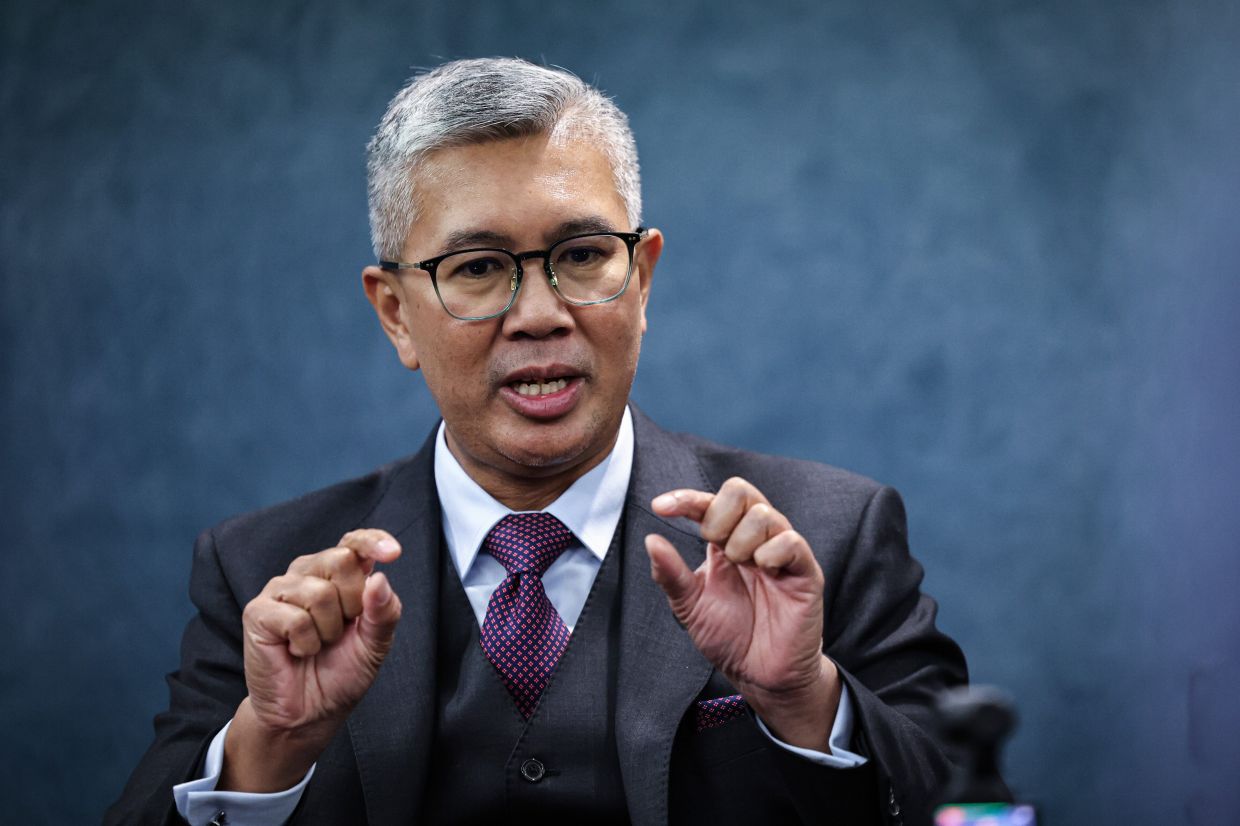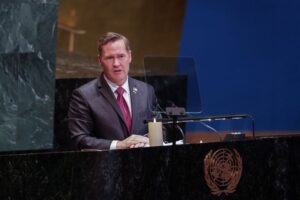SHAH ALAM: The Reciprocal Trade Agreement (ART) between Malaysia and the United States (US) does not compel Malaysia to comply blindly, says Tngku Datuk Seri Zafrul Abdul Aziz (pic), contradicting claims by Tan Sri Muhyiddin Yassin that it would force the country into absolute adherence to US policies.
The Investment, Trade, and Industry Ministry refuted the assertion that Malaysia must take similar actions if the US imposes sanctions or other measures on third countries for economic or national security reasons, Sinar Harian reported.
The Malay language daily reported that Tengku Zafrul had said that key phrases such as “in accordance with domestic laws and regulations” and “within a timeline acceptable to both parties” clearly provide Malaysia with legal space and diplomatic autonomy to manage its actions.
“This provision clearly emphasises that any actions by Malaysia are only applicable to issues of mutual economic concern.
“If the issue does not affect Malaysia’s economic interests, we have no obligation to take similar actions or sanctions as the US. This is a commitment based on shared concerns, not absolute compliance,” Sinar Harian reported him as saying in a Facebook post on Saturday (Nov 1).
On Friday (Oct 31), Muhyiddin, who is Perikatan Nasional chairman, claimed that the ART 2025 agreement contains various “traps” or “time bombs” that could potentially harm Malaysia in the future.
He also alleged that the agreement was filled with economic colonialism agendas that could threaten the country’s independence and sovereignty, urging the government to immediately review the agreement.
Further elaborating, Tengku Zafrul addressed Muhyiddin‘s claim that Article 3.4 prevents Malaysia from imposing technology transfer requirements as a method to attract investments from the US.
He clarified that Article 3.4 aims to prevent forced technology transfer, which he said was a standard provision commonly found in most trade agreements signed by Malaysia.
“Its purpose is to ensure that companies are not forced to relinquish valuable intellectual property (IP) rights, such as trade secrets or source code, to the government as a condition for investing, selling, or operating in Malaysia,” he explained.
Nonetheless, Tengku Zafrul also clarified that the provision provides clear exceptions, allowing the Malaysian government, as a regulator, to access source code, algorithms, and other proprietary technologies for legitimate regulatory and compliance purposes.
He also emphasised that Article 5.2 on Strategic Export Control does not result in Malaysia losing full power or autonomy. Instead, the provision only states a commitment to cooperate in regulating strategic trade, as long as it aligns with Malaysia’s domestic laws.
Tengku Zafrul also clarified confusion regarding rare earth elements and export restrictions, affirming that Malaysia maintains a policy prohibiting the export of raw rare earth elements (REE).
“This policy ensures the development of local downstream industries. This means added value, high-skilled jobs, and processing technology must be created and retained in Malaysia.
“We will not return to being a country that merely extracts and sells raw materials cheaply,” he asserted.
In this context, he reiterated that Malaysia was firmly committed to neutrality, adopting a whole-of-government approach, and consistently ensuring the protection of national interests and sovereignty.
“The government is also unwavering on red-line issues, particularly concerning the Bumiputera Policy, Government Procurement Policy, and full equity liberalisation demands in strategic sectors like energy and telecommunications,” he stated.
He also gave his assurance that the ART agreement contains protection clauses that guarantee national sovereignty, and its implementation is based on national economic interests and security, in line with domestic laws and regulations.






